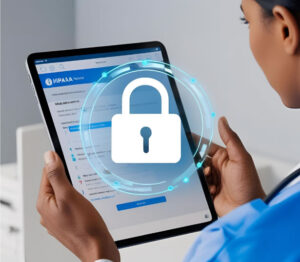Email has become an essential tool for daily business operations, from sharing confidential client information to internal communication among team members. However, with the increase in cyber threats, such as hacking, data leaks, and surveillance, simply sending emails is no longer a secure enough method. That’s where email encryption comes into play—a vital security measure that transforms plain text messages into an unreadable format, ensuring that only authorized recipients can access the content.
Email encryption is not just a technical luxury but a fundamental component of digital security for businesses of all sizes. It helps protect sensitive information from interception and unauthorized access, reducing the risk of costly data breaches and reputational damage. For small businesses, where resources are often limited and cybersecurity expertise may not be readily available in-house, deploying effective encryption methods is particularly crucial for safeguarding operations and maintaining customer trust.
Focusing on the encryption needs of small businesses highlights unique challenges and opportunities. Smaller enterprises often face resource constraints, making it challenging to implement multi-layered security measures. Nevertheless, neglecting email security can lead to devastating consequences—from legal penalties for data violations to loss of customer trust. This guide aims to clarify how small businesses can leverage email encryption to enhance security without overextending their resources.
Understanding Email Encryption for Small Businesses
In simple terms, email encryption is a process that converts readable email messages into a coded format that can only be unlocked by someone with the correct key. Imagine writing a letter in a secret code—only the person with the secret decoder can read it. This ensures that if hackers or unauthorized parties intercept the email during transmission, they won’t be able to understand its content. When the recipient receives the encrypted message, they use a special tool to decode or decrypt it, making the message readable again.
The core of email encryption relies on cryptography, specifically a method called asymmetric encryption. This involves two keys: a public key that anyone can use to encrypt messages sent to you, and a private key that only you possess, used to decrypt those messages. When someone wants to send you a secure email, they encrypt the message with your public key. Only your private key can unlock it, ensuring your communication remains confidential. Conversely, you can also sign messages with your private key, allowing others to verify your identity and ensure the message wasn’t tampered with.
Email encryption has evolved over the years to become a cornerstone of digital privacy. It was developed to address growing concerns about unauthorized access to sensitive information, especially in the era of widespread internet use. Various standards and tools, like PGP (Pretty Good Privacy), have shaped the landscape of secure email communication. For small businesses in particular, understanding and implementing email encryption is crucial, as it serves as a barrier against data breaches that could otherwise expose confidential business or customer information. The potential fallout from such breaches can be costly and damaging.
Assessing Your Small Business’s Email Encryption Needs
Before selecting an encryption solution, small businesses should assess their unique needs and associated risks. Start by considering industry regulations—some sectors, such as healthcare or finance, have strict compliance standards (e.g., HIPAA or PCI DSS) that require secure communication channels, including encryption for sensitive data. Next, analyze the types of data being transmitted via email; if your business regularly handles personally identifiable information (PII), financial records, or proprietary intellectual property, strong encryption is a must.
Another critical step is conducting a security risk assessment. This involves identifying potential vulnerabilities in your current email practices, such as unsecured connections, a lack of encryption, or shared accounts. Ask yourself: Who has access to sensitive data? How is information transmitted? What are the potential consequences if an email were compromised? This assessment will help you determine the level of encryption required and whether additional protections, such as multi-factor authentication or secure email gateways, should be implemented.
Finally, consider your communication methods and day-to-day operational workflows. Do your employees frequently exchange confidential information? Do cybercriminals target your customer-facing emails? Understanding how your organization communicates and what information it transmits helps shape a tailored encryption strategy—one that aligns with your business size, budget, and security priorities. Taking these factors into account ensures that your investment in email security delivers maximum protection with minimal disruption.
Email Encryption Solutions for Small Businesses
Once you’ve assessed your security needs, choosing the right email encryption solution is the next step. There are several options suitable for small businesses, ranging from built-in features provided by email services to dedicated third-party tools. Many popular email providers, such as Gmail and Outlook, now offer native encryption options—such as S/MIME or Confidential Mode—that can be easily enabled and integrated into daily workflows.
For more robust encryption, small businesses can turn to third-party solutions like GnuPG (GPG), Mailvelope, or ProtonMail. GnuPG is a free, open-source software that allows users to generate key pairs and encrypt emails outside of their regular email clients. Mailvelope, a browser extension, integrates with webmail services and provides a user-friendly interface for managing encryption tasks. ProtonMail is an email service that offers end-to-end encryption built into its platform, eliminating the need for users to perform any additional setup.
When comparing encryption options, consider factors such as cost, ease of use, and security level. Built-in email encryption features are quick to deploy but may offer limited control and compatibility. Third-party tools often require an initial learning curve but provide greater flexibility and stronger security options. Additionally, evaluate whether the solution enables easy key management, provides clear instructions for recipients, and integrates seamlessly with your existing email workflows. Choosing the right solution ensures your communication remains secure without impeding productivity.
Implementing Email Encryption in Small Business Operations
Implementing small business email encryption can seem daunting, but following a straightforward, step-by-step process ensures a smooth transition. First, select a user-friendly encryption solution suited to your business size and needs—whether that’s built-in provider tools, browser extensions like Mailvelope, or a dedicated platform like ProtonMail. Make sure the chosen solution complies with applicable regulations and supports your email clients or platforms.
Next, generate your encryption keys. For most solutions, this involves creating a pair of cryptographic keys—a public key to share with contacts and a private key kept secure on your device. It’s essential to encrypt your private key with a strong passphrase and store it in a safe, offline location, such as an encrypted external drive. Once keys are set up, exchange your public key with trusted contacts and verify their keys, establishing a foundation for secure communication.
Finally, integrate encryption into your email workflows. Train staff on how to encrypt and decrypt emails, sending clear instructions or using integrated prompts within the email client or extension. Make encryption as seamless as possible, ideally with one-click options, so that staff see it as a natural part of their communication routine. Regularly test the setup by sending encrypted messages to ensure proper functioning and troubleshoot issues promptly, thereby fostering confidence and consistent use.
Making encryption user-friendly—such as providing simple guides, step-by-step instructions, and support—is crucial for adoption. When staff see how easy it is to send secure messages, they are more likely to comply, creating a security culture that safeguards sensitive information.
Best Practices for Managing Email Encryption
Effective management of email encryption in small business environments depends on establishing clear policies and consistent practices. Start with key management: store private keys securely using password-protected, encrypted wallets or safe storage mediums. Regularly back up keys, and ensure backups are kept offline to prevent theft or loss. Avoid sharing private keys and keep the passphrases used to encrypt them confidential.
Conduct regular security audits to periodically review your encryption practices and identify vulnerabilities or outdated processes. Check whether keys are still valid, inspect logs for irregular access attempts, and update encryption software promptly to patch any known vulnerabilities. Maintaining a routine review process not only keeps your system secure but also ensures compliance with evolving security standards.
Finally, develop clear policies and procedures for email communication, outlining how staff should handle encryption, verify public keys, and report security incidents. Provide ongoing employee training, emphasizing the importance of safeguarding private keys, recognizing phishing attempts targeting encryption keys, and understanding proper procedures for encrypted communications. Continuous education and explicit policies foster accountability, helping to sustain a secure email environment.
Challenges and Solutions in Email Encryption for Small Businesses
Adopting email encryption can involve several challenges, especially for small businesses with limited budgets or technical expertise. Budget constraints may discourage investing in advanced solutions; however, many free or low-cost options, such as GnuPG or Mailvelope, are highly effective and suitable for small-scale use. Prioritize open-source tools and free platforms that provide robust security features without hefty licensing fees.
Technical complexity can be a barrier, particularly for staff unfamiliar with cryptography. To address this, choose solutions with intuitive interfaces, comprehensive guides, and active support communities. Offer training sessions or step-by-step tutorials to demystify the process. Automating routine tasks—such as key management and email encryption—to the extent possible reduces user error and minimizes frustration.
Resistance to change is common among staff accustomed to familiar workflows. To mitigate resistance, emphasize the importance of security in protecting the company and client data. Demonstrate how encryption can be integrated smoothly with existing tools, and involve employees early in the process to gather feedback and foster buy-in. Clear communication and incremental implementation can help embed encryption practices into daily operations.
Legal and Compliance Considerations
Implementing email encryption isn’t just a security choice; it often has legal and regulatory implications. Industries such as healthcare, finance, and legal services are subject to strict compliance standards, including HIPAA, GDPR, and PCI DSS, which mandate the protection of sensitive data, often through encryption. Failure to comply can result in substantial fines, legal penalties, and damage to one’s reputation.
To stay compliant, carefully review industry-specific requirements and ensure your encryption methods meet or exceed those standards. For example, choose encryption solutions that support certified standards, such as FIPS 140-2, if mandated. Document your encryption policies and procedures thoroughly, including key management practices and incident response plans, to demonstrate your compliance efforts during audits.
Additionally, stay informed about evolving regulations and best practices by consulting legal experts or cybersecurity consultants. Regularly update your encryption tools and policies to ensure alignment with new legal standards and technological developments. Keeping detailed records of encrypted communications and security measures can also be critical if your business needs to demonstrate compliance in legal or audit scenarios.
The Future of Email Encryption for Small Businesses
As technology advances and cyber threats become increasingly sophisticated, the landscape of email encryption for small businesses is poised to undergo rapid evolution. Emerging trends include the development of more user-friendly and automated encryption solutions that integrate seamlessly into existing workflows, making secure communication more accessible to non-technical users. Innovations such as machine learning and AI-driven threat detection will enhance encryption protocols, enabling systems to identify and respond to potential breaches or vulnerabilities more quickly and effectively.
Another significant trend is the move toward quantum-resistant encryption algorithms. As quantum computing progresses, current encryption methods could become vulnerable to decryption attacks. Small businesses that adopt flexible, forward-thinking encryption solutions early will position themselves advantageously, ensuring their data remains protected even as computational capabilities evolve. Moreover, increasing regulatory demands and privacy standards will likely prompt tighter integration of encryption techniques into daily business operations, making encryption a core component rather than an optional add-on.
Lastly, interoperability and standards development will play a crucial role. Future encryption tools are expected to support broader compatibility across platforms, making encrypted communication smoother regardless of the software or service used by partners or clients. Small businesses that stay ahead by adopting adaptable and standards-compliant encryption solutions will reduce risks, enhance trust, and ensure compliance—keeping them resilient in an ever-changing cybersecurity environment.
Final Thoughts
Throughout this guide, we’ve highlighted the vital role of email encryption for small businesses in protecting sensitive data, maintaining customer trust, and complying with industry regulations. From understanding the basics of how encryption works to selecting appropriate solutions and implementing best practices, small business owners can take meaningful steps to fortify their digital security posture. Encryption isn’t a mere technical safeguard—it’s an investment in your company’s reputation and long-term resilience.
By proactively adopting encrypted email solutions, small businesses can mitigate risks associated with data breaches, cyberattacks, and regulatory penalties. Building secure communication channels not only protects confidential information but also signals to clients and partners that your company values privacy and security—an increasingly critical differentiator in today’s competitive landscape. Now is the time to prioritize email encryption as a fundamental element of your cybersecurity strategy.
If you haven’t already, evaluate your current email security measures and consider integrating effective encryption solutions tailored to your business’s size and needs. The right tools will depend on your industry, budget, and technical capabilities—start exploring options such as secure email providers, encryption plugins, or dedicated key management systems. Remember, the most robust security strategy involves ongoing assessment, education, and adaptation to new threats.
Don’t hesitate to reach out to cybersecurity professionals or specialized vendors who can provide personalized advice and assistance in selecting, deploying, and maintaining encryption technology. Partnering with experts can streamline implementation, enhance your security posture, and give peace of mind that your communications are protected. Take proactive steps today—your business’s security and reputation depend on it.






